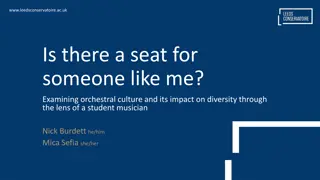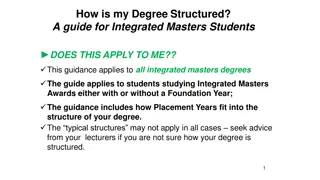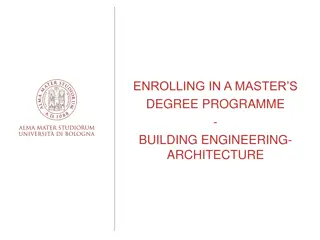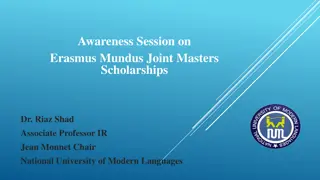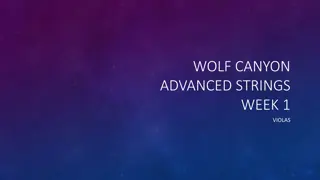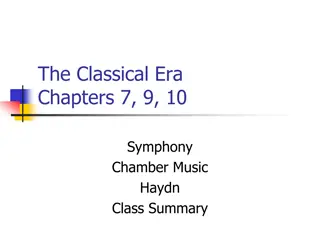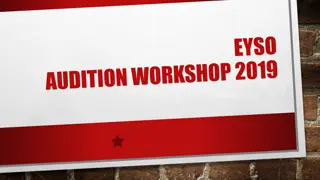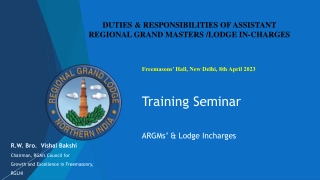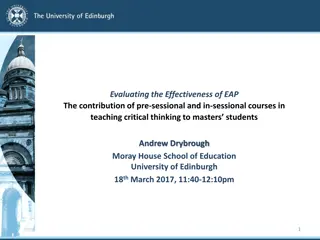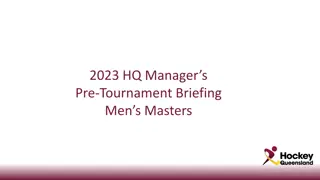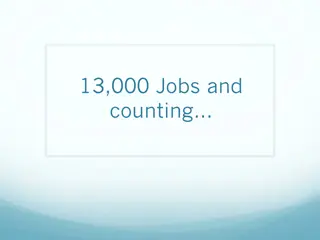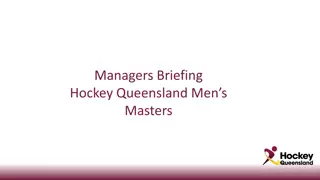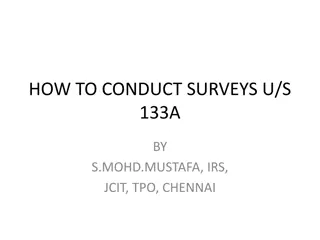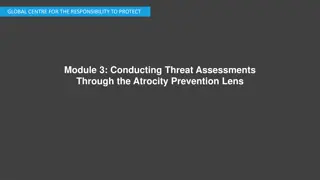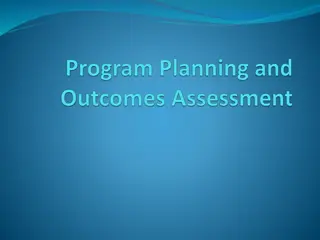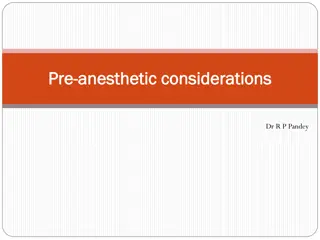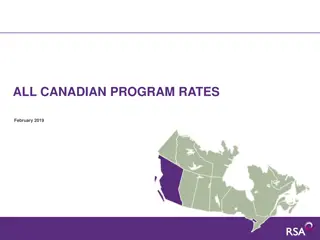Master's Program in Orchestral Conducting: Insights and Considerations
Discover the essentials of pursuing a Master's degree in Orchestral Conducting, including reasons for seeking the degree, qualities to look for in a program, factors to consider, and tips for selecting the right school. Unveil a comprehensive guide for aspiring conductors looking to enhance their expertise in the field.
Download Presentation

Please find below an Image/Link to download the presentation.
The content on the website is provided AS IS for your information and personal use only. It may not be sold, licensed, or shared on other websites without obtaining consent from the author. Download presentation by click this link. If you encounter any issues during the download, it is possible that the publisher has removed the file from their server.
E N D
Presentation Transcript
Conducting 101: Session 3 Master s Program in Orchestral Conducting Dr. Chaowen Ting Director of Orchestral Studies, Georgia Institute of Technology Dr. Carolyn Watson Director of Orchestral Studies, University of Kansas
WITH SPECIAL GUESTS.. Dr. M lisse Brunet Director of Orchestral Activities, Appalachian State University Dr. Thomas Taylor Dickey Director of Orchestral Studies, Oklahoma State University
Why Do You Want a Masters Degree? To expand your knowledge and experience To hone your studies on a particular area of interest Aspiring professional conductor Aspiring college professor Public school teacher Wanting to work with youth and/or community orchestras
What Are You Looking for in a Masters Degree? Institution with a good reputation Teacher with a good reputation Pedagogical approach and emphasis Podium time time in front of the full ensemble or studio ensemble (piano quintet, chamber orchestra, lab orchestra) both as a student and as a conductor A strong and well-run orchestral program Repertoire exposure (what does the orchestra play?) Additional conducting/teaching opportunities A good fit
Things to Consider for a Masters Degree Graduate Teaching Assistantship (tuition waiver/stipend) Size of the conducting studio Podium time Curriculum Degree recital (self-organized? Conducing a *part of* regular orchestra concert?) Foreign language requirement Academic load? Thesis GRE Overall cost of degree program, and cost of living in that location Location and the strengths of the program/school outside of conducting
List of Schools Top choices, dream schools Likely possibilities Backup/alternate possibilities Consider pros and cons of each option and try to weigh up the best option for you. The most famous schools might not be right for you.
Contacting Professors It s a 2-sided market! Craft an email of introduction Express interest Inquire about openings in the studio Inquire about assistantships Thank them for their time Allow two weeks for a reply, then follow up Proofread, proofread, proofread!
Next Steps Brief resume (1 or 2 pages) Education, conducting opportunities, other musical/professional experiences Videos (2 or 3) Standard repertoire Contrasting videos Clearly see the conductor and the orchestra Give password if protected/locked preferably not; unlist your video instead of locking it Repertoire list Works conducted and studied in alphabetical order of the composers Can have subsections like symphonic/opera/choral orchestral/contemporary, but not as small as different genres (concerto/overture/symphony)
Applications Letters of recommendation Current orchestra director Applied lessons/studio teacher Academic professor (music theory or history) Make sure you ask for the letter early not last minute - and give your recommender enough information to write a compelling letter. Resume Additional video(s) due to pandemic Test scores as applicable
What are Professors Looking for? Potential for success Basic baton technique Developing left hand Enthusiasm Teach-ability Musicianship Podium presence/demeanor Communication and leadership skills with orchestra - how well you work with the ensemble
Acceptance Offers Good fit with the conducting professor Good fit with the university Graduate teaching assistantship & stipend What if you do not get into one of your top picks? Second tier picks? Backup picks? Gap year? Try again next year?
Keep in mind, also important are. Scores, scores, learn lots of scores! lyric diction and anything related to voice create your own ensemble think ahead: what is your dream job, and behave as if you had it. Exercise, eat healthy, learn other skills (business, computer, technology, languages, instruments/voice, etc.)


